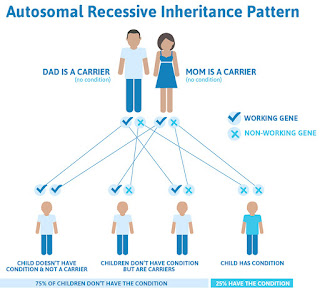Boehringer, Neurocrine Win New Approvals for Humira Biosimilar, Huntington’s Drug
Discover Treatment Options For Abnormal Period Symptoms
Your browser is not supportedusatoday.Comusatoday.Com wants to ensure the best experience for all of our readers, so we built our site to take advantage of the latest technology, making it faster and easier to use.
Unfortunately, your browser is not supported. Please download one of these browsers for the best experience on usatoday.Com
Hospital Move For Patients With Blood Disorders
Some blood disorder patients needing emergency treatment in Dorset are being advised they will soon have to visit a different hospital.
Durlston ward, external at Poole Hospital, which cares for haematology inpatients, will move to Ward 7R in Royal Bournemouth Hospital (RBH), external from Monday.
RBH will become an emergency hospital, while planned haematology admissions will still be sent to Poole.
The move would see the majority of patients centralised to a single hospital site so resources could be streamlined, the county's NHS trust said.
Aside from the location change, the move is not expected to impact cancer care, according to University Hospitals Dorset NHS Foundation Trust.
It follows a review in 2017, external, which proposed the majority of inpatient wards should be moved to the hospital in Bournemouth.
Most other ward moves were unlikely to take place until 2025, external, the trust added.
Versiti Blood Research Institute Works To Improve Patients' Lives
Photo courtesy of Versiti Blood Research InstituteMilwaukee is home to some of the most innovative and groundbreaking blood research going on in the world. At Versiti Blood Research Institute (VBRI), experts in dozens of blood-related fields collaborate to discover new treatments, better understand disorders, improve patient outcomes and much more.
That remarkable atmosphere, leading-edge team, and support for new efforts brought Lisa Baumann Kreuziger, MD, MS, to Milwaukee in 2013, when she was offered the chance to create a research program focused on thrombosis (blood clots in the veins of the legs or lungs).
Photo courtesy of Versiti Blood Research Center"There are world-class experts here in Milwaukee, uniquely focused on blood research," Dr. Baumann Kreuziger says. "We're growing and collaborating with other institutions, and it's allowing us to pursue important work."
In 2016, Dr. Baumann Kreuziger led the creation of VENUS (Venous thromboEmbolism Network U.S.) at VBRI, the only clinical trial research network in the country that focuses on venous thrombosis, bringing together an international group of partners to spearhead studies into the condition.
And three years later, VBRI launched the coordinating center for the network in Milwaukee, where Dr. Baumann Kreuziger oversees multiple studies.
Some of the most high-profile studies came in 2020, which examined the use of anticoagulation (blood thinner) treatments for patients with COVID and discovered that the treatments are useful when patients are hospitalized, but are no longer necessary if the patient becomes sick enough to enter intensive care.
"Collaboration is at the forefront of VENUS, not competition," Dr. Baumann Kreuziger says. "Each of our scientists has a part in these studies, which are important for the field as a whole. Whether that's designing the study, gathering data, or writing about our research."
Dr. Baumann Kreuziger also works with VBRI's Alan Mast, MD, PhD, and Jerry Gottschall, MD, to coordinate the REDS program (Recipient Epidemiology and Donor Evaluation Study), a long-term effort to ensure the safety of the blood donor supply and improve its efficacy for patients who rely on transfusions.
The ongoing study has led to advances in understanding infections in the blood supply, such as HIV and Zika. One recent breakthrough discovered a gene in donors that led to the blood cells breaking apart in the bag before a transfusion. REDS has also built a database to study and determine the qualities in donors and recipients that lead to the best outcomes and further tailor and improve the transfusion process.
Photo courtesy of Versiti Blood Research CenterThis year, VBRI is expanding its Wauwatosa campus, nearly doubling its research capacity and adding almost 100 new jobs. Dr. Baumann Kreuziger believes VBRI's work will not only benefit from more researchers, but also from the new physical space, where "natural collaboration will happen."
"There are still many unanswered questions out there," she says. "We're making many strides to better understand how to treat patients. We have generated a significant amount of research, and are figuring out how to implement these findings so that everyone can benefit."
Versiti
414-937-6238
Versiti.Org/VBRI
This story is part of Milwaukee Magazine's May issue. Find it on newsstands or buy a copy at milwaukeemag.Com/shop. Be the first to get every new issue. Subscribe.

Comments
Post a Comment